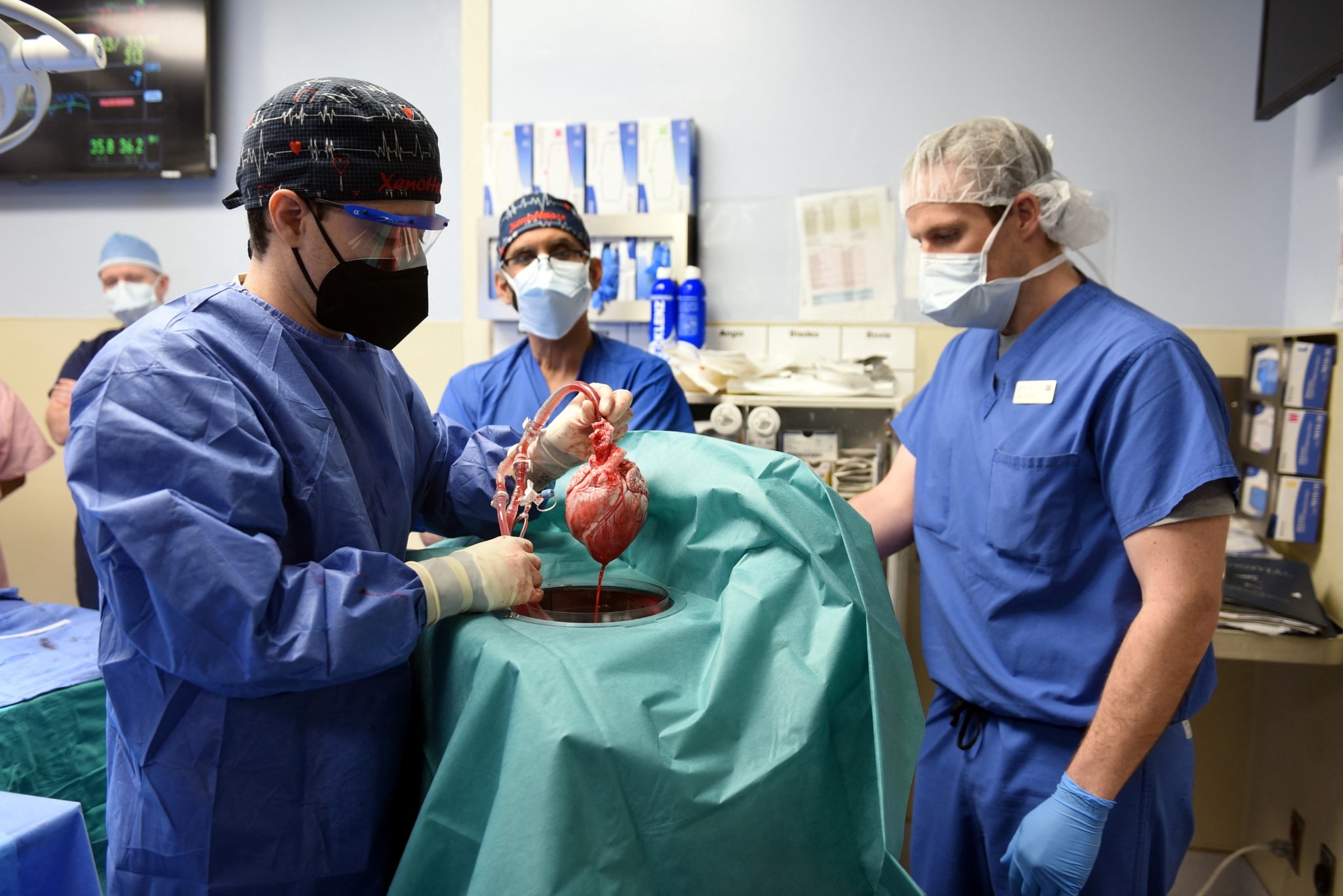The University of Maryland Medical School said Monday that surgeons have successfully implanted a heart from a genetically engineered pig in a human patient, a first of its kind treatment.
The operation was conducted on Friday, and it proves that the heart of an animal could survive within a person without being rejected, according to a statement from the medical school.
David Bennett, the patient, had been ruled ineligible for a human transplant.
The 57-year-old man from Maryland is being monitored closely to see how well the new organ functions.
“It was either die or do this transplant. I want to live. I know it’s a shot in the dark, but it’s my last choice,” he said a day before the surgery.
Bennett, who has spent the last several months bedridden on a life support machine, added: “I look forward to getting out of bed after I recover.”
On New Year’s Eve, the Food and Drug Administration gave emergency approval for the procedure as the very last effort for a patient who was unfit for a traditional transplant.
“This was a breakthrough surgery and brings us one step closer to solving the organ shortage crisis,” said Bartley Griffith, who surgically transplanted the pig heart.
“We are proceeding cautiously, but we are also optimistic that this first-in-the-world surgery will provide an important new option for patients in the future.”
Bennett’s donor pig came from a herd that had undergone genetic editing to remove a gene that generates a particular sugar that would have normally triggered a strong immune response and resulted in organ rejection.
Revivicor, a biotech company that also supplied the pig used in a groundbreaking kidney transplant on a brain dead patient in New York in October, did the modification.
The scientists employed a novel medicine in conjunction with traditional anti-rejection treatments to suppress the immune system and prevent it from rejecting the organ before surgery. Kiniksa Pharmaceuticals developed it as an experimental chemical.
According to official statistics, around 110,000 Americans are now waiting for an organ transplant, with more than 6,000 individuals dying each year before receiving one.




